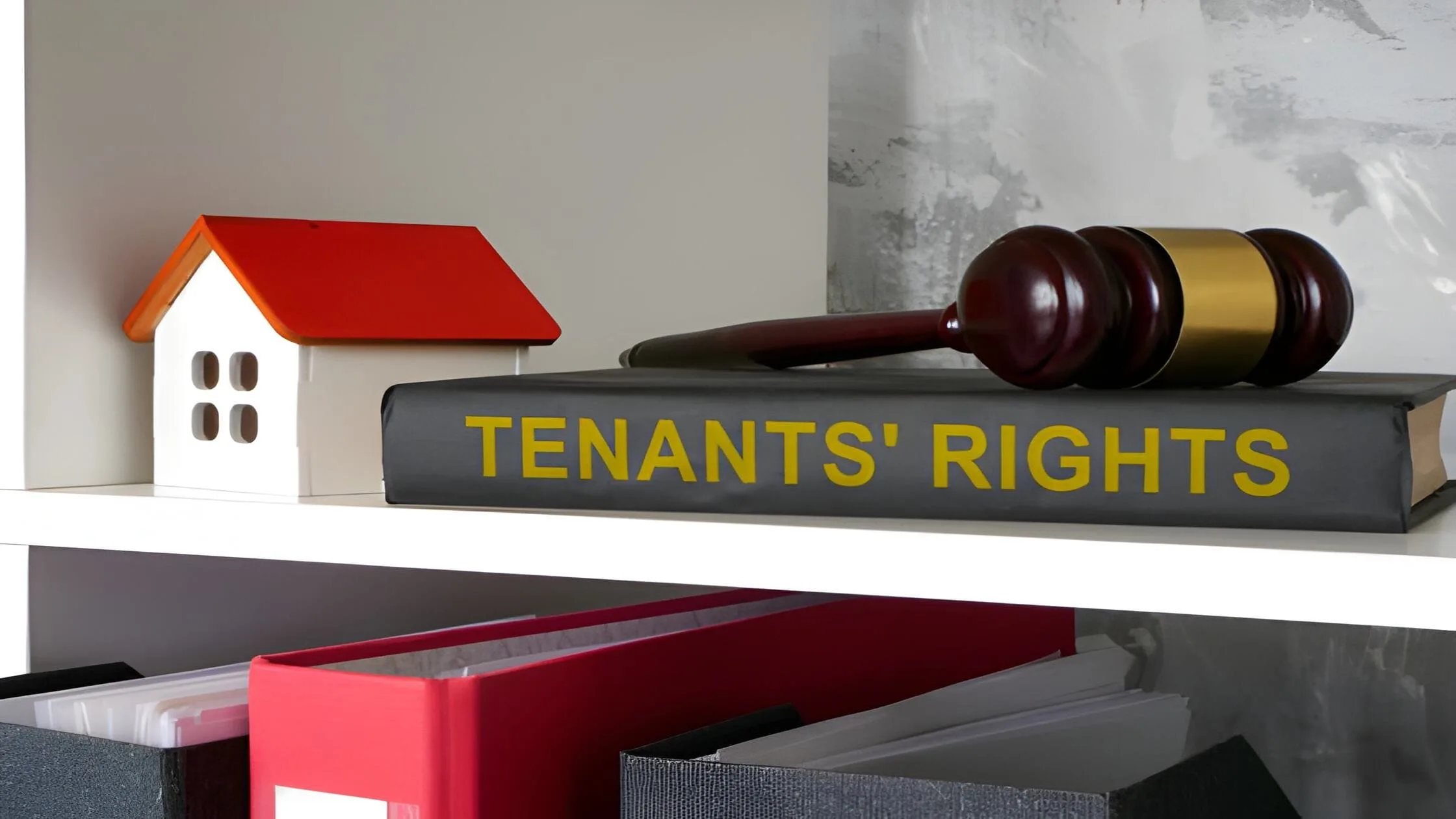In recent years, the number of legal disputes between landlords and tenants has increased in Pennsylvania. The state has strengthened Pennsylvania tenant screening laws to ensure fairness for both sides. Therefore, landlords must keep informed about the updated screening standards, including checking credit, background, and rental history. If not, they have to face serious penalties.
This 2025 guide explains key screening rules, fees, and tenant rights. It also highlights local rules, like Philadelphia’s Renters’ Access Act, so landlords and renters can avoid costly disputes.
Overview of Tenant Screening Laws in Pennsylvania
Pennsylvania rental application laws come from both federal and state laws. These laws affect how tenant screening in Pennsylvania works. They set legal screening methods and rules for fees and notices landlords must give. We highly recommend that landlords do in-depth research about Pennsylvania state law.
Fair Housing Act (FHA)
The federal Fair Housing Act stops discrimination in the rental process based on race, color, religion, sex, and family status. These rules apply to all leases. They shape lease laws in Pennsylvania.
Fair Credit Reporting Act (FCRA)
The Fair Credit Reporting Act (FCRA) controls how landlords use credit reports. Landlords need permission in writing before checking reports. If a report leads to denial, landlords must tell the applicant. They must also share the credit agency’s contact information. This ensures fairness when using credit and background data.
Pennsylvania Human Relations Act (PHRA)
The Pennsylvania Human Relations Act adds more protections. It bans housing discrimination based on age, pregnancy, ancestry, or support animal use. This law strengthens state-level safeguards. Applicants have broader protections than under federal law alone.
Allowable Tenant Screening Criteria in Pennsylvania

Under Federal and state laws, landlords use various tenant background screening rules to pick tenants. These laws require landlords to fairly assess tenants to avoid discrimination and legal trouble. The following sections explain the specific screening elements landlords commonly use and how these components shape the way landlords screen potential tenants.
Written Screening Policy Requirements for Landlords
In Pennsylvania, landlords are advised to establish a written screening policy and apply it consistently to every applicant. This document should detail the specific requirements for renting a house in Pennsylvania. What landlords look for in a background check includes:
- Minimum credit score.
- Income requirements
- Criminal background limits
This written policy protects you from legal claims. It proves your decisions were based on fair facts and not on personal bias. Making the criteria clear reduces claims of unfair treatment.
Credit Check
Landlords need written permission before running a credit check. Credit checks show if tenants pay bills on time. If denied for credit reasons, landlords must say why and tell tenants how to dispute errors. This is part of Pennsylvania's background check rules and standards for background checks for renters in Pennsylvania.
Eviction Records
Landlords can look at evictions to see past problems. But they must be fair and not discriminate. This is part of a good rental house background check and helps landlords judge risk well. Landlords should examine the timeframe of evictions and the reasons behind them.
They should also check any later rental success. An older eviction may matter less than recent stability. The screening should also verify the accuracy of eviction records. Reporting errors can impact qualified applicants. Landlords should learn how to check eviction history accurately and legally.
Criminal History
Landlords can check criminal records, but cannot use arrests that didn’t lead to charges or sealed records. Instead, landlords should focus on risks affecting tenant safety. Rejecting an applicant for old or minor offenses may lead to a disparate impact claim. Reviewing the guidelines for HUD criminal background check requirements is vital for compliance.
When running a full tenant background check in Pennsylvania, you must be cautious. Many landlords apply the three times rent rule. It requires applicants' monthly income to equal or exceed three times the rental amount. This standard helps ensure tenants can afford the payments.
Local Ordinances in Tenant Screening Criteria
State law sets the minimum standard for Pennsylvania tenant screening laws. Yet, local areas often have much stricter rules. Philadelphia is the main example. Philadelphia has a special law. It is called the Renters’ Access Act and Code § 9-810.
The law makes landlords share their screening process. It also requires them to treat tenants fairly. Tenants can appeal if denied. They can also get info on upcoming units.
- Criminal Convictions: Landlords can only look back three years. This limited time gives people with older convictions a fair chance.
- Arrests Alone: Landlords cannot deny housing based on arrest. Arrest records alone are not enough reason for rejection.
- Sealed/Expunged Records: Landlords cannot use sealed or expunged criminal records. This protects tenants from past issues that have been legally cleared.
- Eviction History: Eviction filings older than four years cannot be used to reject an applicant. This prevents lifetime penalties for old issues.
If you rent properties in different Pennsylvania regions, be careful. You must create policies specific to each location. Using tools like our tenant screening checklist can help. This ensures you craft clear, compliant screening procedures for every area you serve.
How Much Landlords Can Charge Tenant Screening Fees
Landlords in Pennsylvania typically charge screening fees between $30 and $75 per applicant. These fees cover the cost of background, credit, and eviction reports. Pennsylvania law allows landlords to charge these fees, but does not set a maximum limit.
However, fees must be reasonable and directly cover screening expenses. Landlords cannot profit from screening fees or use them as extra income. They should provide receipts if applicants request them, proving the actual screening costs.
To ensure fairness, landlords must tell tenants the fee before they apply. This clear notice helps avoid confusion. Usually, fees are not refunded, even if the application is denied.
A Practical Guide to the Pennsylvania Tenant Screening Process

Pennsylvania tenant screening laws set out a five-step process for fair, consistent evaluations:
Step 1: Collect Applications and Screening Fees
Start by collecting complete rental applications. Make sure each application includes personal details, rental history, and employment info. Always get a signed consent form allowing you to run credit and background checks. Clearly explain that the screening fees are non-refundable. Giving tenants this transparency avoids confusion and legal issues.
Step 2: Process Applications
Before screening, review applications carefully. Check that all fields are filled out and documents like pay stubs or IDs are attached. Incomplete applications should be returned for completion. This saves time later and ensures accurate tenant screening reports.
Before making a final choice, landlords must verify tenant income by checking wage statements. If income sources are complex, professional tools can help with proper rental verification.
Step 3: Run a Pennsylvania Tenant Screening Report
Use trusted tenant screening services that many Pennsylvania landlords rely on. These services pull detailed reports covering credit scores, eviction history, and criminal records. LeaseRunner provides tenant background screening that helps landlords stay compliant.
Understanding the full scope of a tenant screening report is vital for compliance. This step ensures you screen tenants fairly and thoroughly.
Step 4: Evaluate & Make the Final Decision
Compare the screening results with your written tenant screening policy. Pay close attention to income verification to follow the 3x rent rule. Use tools like LeaseRunner’s income verification service to confirm details. Apply written criteria fairly for all applicants.
Document how credit issues, criminal history relevance, and rehabilitation evidence influenced decisions. Use individual assessments rather than blanket bans. Landlords can determine how much rent I should charge by consulting market data and property analysis before setting prices.
Step 5: Issue Decision Notice
Promptly inform applicants if they are accepted or denied. If denied, send a clear adverse action notice as required by the Fair Credit Reporting Act (FCRA). This notice should include specific reasons for denial and instructions for dispute. It must include the name of the Consumer Reporting Agency (CRA).
It also must tell the applicant about their right to dispute the information. Reviewing what a notice period is helps ensure timely communication.
Tenant Rights During the Tenant Screening Process

Pennsylvania tenants possess several important protections throughout the screening process. Both federal and state consumer protection laws establish these rights.
Right to Non-Discrimination
All applicants have a fair right under Pennsylvania tenant screening laws. This includes race, color, or disability status. Landlords must apply screening criteria evenly to all applicants. They cannot use different standards based on protected traits.
Right to Consent for Consumer Reports
The Fair Credit Reporting Act (FCRA) gives tenants the right to consent before landlords pull reports. A landlord must get written consent first because of the need to pull credit. Without this signed permission, it is illegal.
Right to Adverse Action Notifications
A landlord must notify applicants if they are denied due to a consumer report. This written adverse action notice explains the reasons. It also guides the tenant on how to contact the agency. For instance, if an eviction record is the cause, the tenant must be informed to check for errors.
Right to Access Screening Reports
Applicants can get copies of their reports from the landlord or from the agencies. This access lets tenants verify information before they apply elsewhere. Landlords should be ready to provide these copies when needed.
Right to Dispute Errors
Tenants can dispute mistakes using the adverse action notice. They can contact the consumer reporting agency to fix errors. To protect their rights, tenants should know how to check their tenant screening report.
Right to Privacy Protection
Landlords must keep personal info private. They cannot use tenant data for anything else. Violating this breaks Pennsylvania background check rules. Also, Pennsylvania rental laws require security deposits to protect funds once a tenant is approved. Understanding these rights benefits both tenants and landlords.
Best Practices for Pennsylvania Landlords to Stay Compliant

Good tenant screening helps landlords follow the law and be fair to renters. Clear rules and steps protect both landlords and applicants.
Establish Clear Screening Rules
Write simple tenant screening policies that follow the law. Include rules like credit score minimums, income needs, and limits on criminal history. For example, state, "Applicants must have credit scores over 620 and make at least three times the rent." These rules help treat everyone fairly.
Get Written Permission
Always get a signed form before doing credit or criminal background checks. Put this consent on the rental application. For example, use the phrase, "I agree to let the landlord check my credit and background." This follows the Fair Credit Reporting Act (FCRA).
Use Trusted Screening Services
Use a reliable tenant screening service in Pennsylvania like LeaseRunner. This digital platform generates accurate reports, including credit, eviction, and criminal histories. It offers instant results, FCRA-compliant screenings, and secure data handling. Its easy-to-use interface and flexible pricing help landlords make smart rental decisions while protecting tenant privacy.
Be Clear About Fees
Tell tenants about screening fees before they apply. State the fee amount and say if it is refundable. For example, state, "The screening fee is $45 and is non-refundable." Clear information helps avoid conflicts later.
Send Denial Notices
If you deny an applicant, send an adverse action notice fast. This notice explains why and tells the tenant how to dispute mistakes. For example, say, “You were denied due to a credit score under 600. Contact the reporting agency for questions."
Keep Data Secure
Keep tenant info safe; use secure systems and limit who sees the data. Pennsylvania law required landlords to protect applicants' private information.
Watch Local Laws
Knowing local rules, including Philadelphia's Renters' Access Act law. Make sure you follow local, state, and federal laws. This is vital for rental requirements in Pennsylvania.
Conclusions
Staying up-to-date with Pennsylvania tenant screening laws is about more than avoiding penalties. Our goal at LeaseRunner is to provide you with the necessary tools and knowledge. This helps you navigate this complex legal landscape with total confidence. Staying informed helps both renters and landlords in a fair, legal process.
FAQs
1. What background checks can landlords run in Pennsylvania?
Landlords may run credit checks, review criminal records, and check eviction history. Written consent from the applicant is required, and all checks must follow fair housing laws to avoid discrimination.
2. What should landlords know when doing criminal background checks?
Landlords cannot impose blanket bans on all criminal records. Screening must be fair and consistent, based on legitimate safety concerns. Arrests without convictions cannot be used to deny an application. Evaluations should consider the nature, timing, and severity of offenses per HUD guidelines.
3. How long do criminal records affect tenant screening decisions?
There is no fixed time limit, but recent and serious convictions may justify longer exclusion than older or minor offenses. Each case should be assessed individually.
4. How much is a background check for an apartment in Pennsylvania?
Screening fees typically range from $30 to $75, reflecting the actual cost of running reports. Pennsylvania does not cap these fees, but charges must be reasonable and not profit-driven.
5. What are the rent control laws in Pennsylvania?
Pennsylvania does not have statewide rent control. Landlords may raise rent by any amount but must provide proper written notice based on lease terms or state law.



